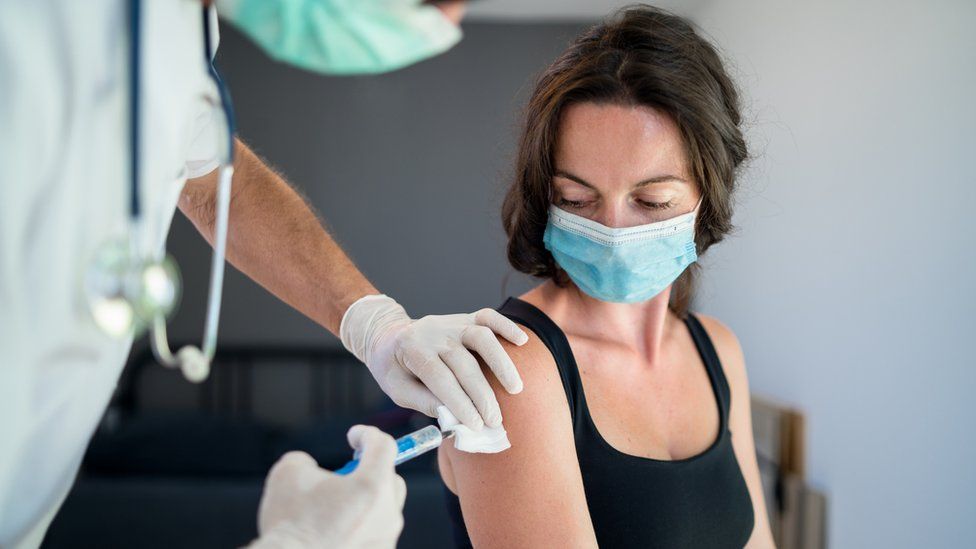IMF upgrades UK economic forecast
- Published

The UK economy will grow faster than expected this year as it recovers from the Covid pandemic, the International Monetary Fund (IMF) has said.
Economic prospects for rich and poor nations have diverged more due to differing access to Covid vaccines, it said.
In a new assessment, the IMF said the world is increasingly split into two blocs.
It has upgraded growth forecasts for developed economies.
But the outlook for many developing countries has weakened.
Among the forecast revisions for this year, the largest upgrade is for the UK to 7%.
Britain is also now predicted to have the joint fastest growth of the G7 leading rich countries, together with the US, although that follows a contraction last year that was the deepest in that group.
The UK's Chancellor, Rishi Sunak, welcomed what he called "the positive signs that the economy is rebounding faster than previously expected".
However, he acknowledged that there were still challenges ahead and said the government would remain focused on protecting and creating as many jobs as possible.
The IMF - an international organisation that seeks to promote economic growth, trade and financial stability - says there is a division between those countries "that can look forward to further normalisation of activity later this year - almost all advanced economies - and those that will still face resurgent infections and rising Covid death tolls".
Its report says that in the rich countries almost 40% of the population is fully vaccinated.
In emerging market economies - the more advanced developing nations - it's less than half that, and just a "tiny fraction" in low income countries.
For the rich countries together, growth is now predicted to be stronger this year by half a percentage point. But there is an offsetting downgrade for the rest of the world which leaves the global 2021 forecast unchanged at 6%. There is an upgrade next year to 4.9%.
However, the IMF warns that even in countries with very low infection levels, the economic recovery is not assured as long as the virus circulates elsewhere.
Another factor fuelling the divergence is the steps taken by governments to support economic recovery. The report calls the effect in the US "sizable".
The report says that international action is needed to diminish divergences and strengthen global prospects. It says the immediate priority is to deploy vaccines equitably worldwide.
"Concerted, well-directed policies can make the difference between a future of durable recoveries for all economies or one with widening fault lines - as many struggle with the health crisis while a handful see conditions normalise, albeit with the constant threat of renewed flare-ups."
The report suggests that inflation - which has surged in some countries - is in most cases likely to subside to pre-pandemic ranges next year. It could, however, be more persistent if people and businesses come to expect higher inflation and seek to raise prices and wages in anticipation.
- Published16 June 2021
- Published10 June 2021
- Published7 June 2021